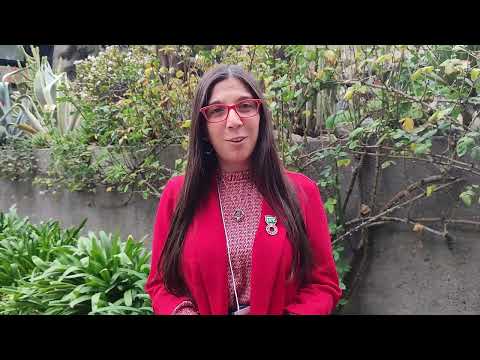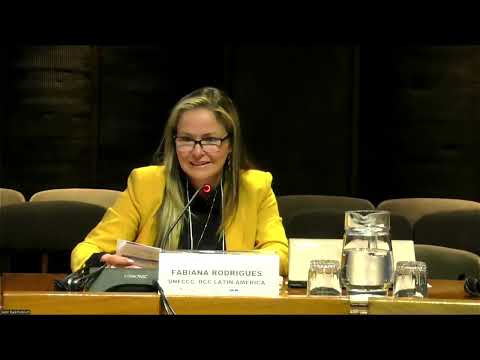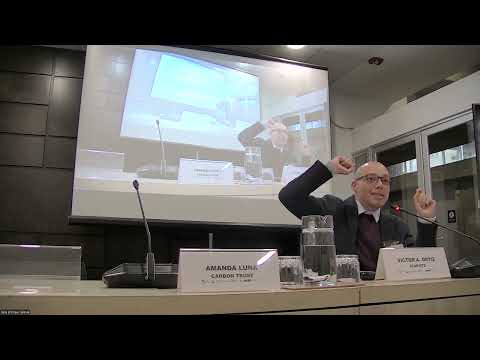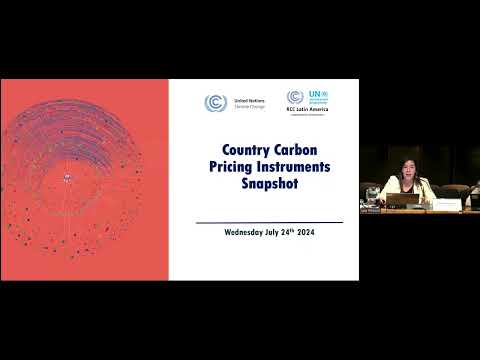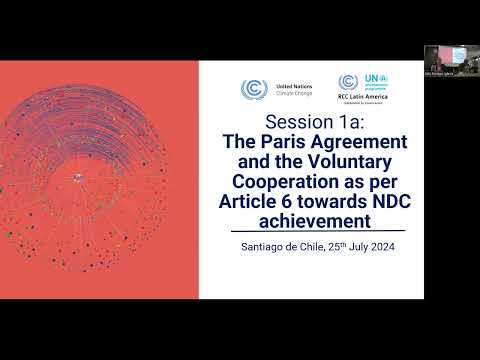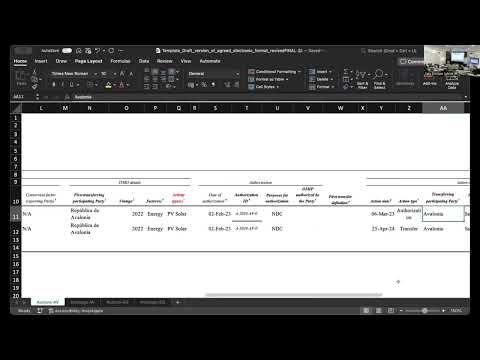CPA’s Carbon Pricing and Article 6 Workshop and REdiCAP
Work area(s)
Event information
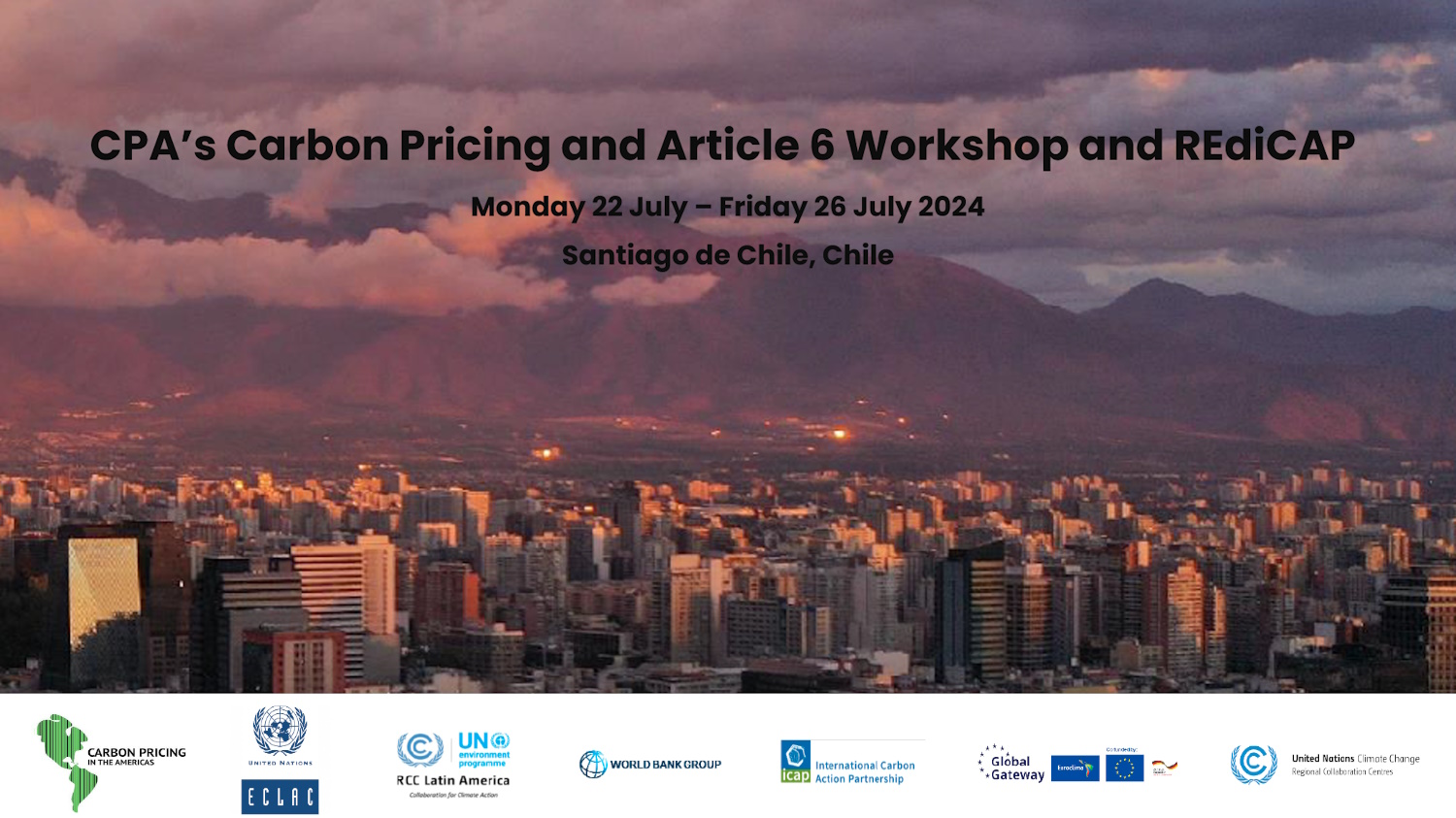
Date
Event type
The Carbon Pricing in the America (CPA), in collaboration with the UNFCCC Regional Collaboration Centre (RCC) for Latin America and the Economic Commission for Latin America and the Caribbean (ECLAC), is thrilled to present its first CPA’s Carbon Pricing and Article 6 Workshop and REdiCAP.
This five-day training will be conducted at ECLAC's facilities in Santiago de Chile, from July 22nd to 26th, 2024. It is funded by ECLAC with support from Euroclima, and the CIACA Project, which is implemented by the United Nations Framework Convention on Climate Change (UNFCCC) Secretariat through its RCCs.
This first edition of the CPA Knowledge-Sharing and Hands-on Training will bring together CPA members, observers and partners, to overview the different carbon pricing instruments such as carbon taxes, with a particular focus on the implementation of an Emission Training System (ETS). Recognizing the significance of carbon pricing as a policy tool for incentivizing greenhouse gas emissions reduction and facilitating the achievement of countries’ Nationally Determined Contributions (NDCs), the training will shed light on the pivotal role of ETS in the climate policy mixes of numerous jurisdictions. It will particularly highlight the growing interest among emerging economies and developing countries in taking steps towards developing such systems and expanding global emissions coverage.
The event presents an exceptional opportunity also to host the Regional Dialogue on Carbon Pricing (REdiCAP), aimed at sharing practical experiences and insights gained from the implementation of carbon pricing instruments. This initiative aligns with the broader global effort to promote carbon pricing as a crucial tool for addressing climate change. It draws upon key lessons learned from the UNFCCC Secretariat’s Collaborative Instruments for Ambitious Climate Action (CiACA) initiative, emphasizing the effectiveness of regional exchange of experiences from both national and subnational perspectives. Furthermore, the event will aim to demystify Article 6 of the Paris Agreement, offering insights into its opportunities, challenges, participation requirements and implications. We hope that this first edition will live up to your expectations and lay the foundations to deepen the knowledge acquired in future editions of our Knowledge-Sharing Training.
Programme of work
Introduction
Welcoming remarks
o Carlos De Miguel, Chief of the Sustainable Development and Human Settlements Division, ECLAC (5 min)
o Maisa Rojas, Minister of the Environment of Chile (10 min)
o Fabiana Rodrigues, UNFCCC RCC Latin America (5 min)
o Ewout Sandker, Head of Cooperation EU-Delegation Chile (5 min)
o Myriam Savard-Lajeunesse, Quebec Bogota Office (3 min)
o Javier Martínez, CPA Co-Chair, Panama (3 min)
Overview of Carbon Pricing Instruments: A Latin American Perspective
o Jimy Ferrer, Economic Affairs Officer, ECLAC.
Direct link to the session video
Presentation(s)
Leveraging Carbon Pricing Policies for NDC achievement and progression
o Laura Lasso De La Vega, UNFCCC RCC Latin America
This session will introduce the importance of mobilizing both domestic and international sources of finance, including from the private sector and how well-designed carbon pricing policies support climate ambition under the Paris Agreement and its upcoming 2025 NDCs (NDC 3.0) with due consideration of national circumstances and priorities.
Direct link to the session video
Presentation(s)
Presentation of the State and Trends of Carbon Pricing in other regions
o Marlen Goerner (World Bank – PMI)
Direct link to the session video
Presentation(s)
Introducing the participants
o Dorsa Sabet-Rasekh - CPA Secretariat
Intro to Carbon Pricing & ETS: Comparing different carbon pricing instruments and looking at design elements of an ETS
o Marlen Goerner (World Bank – PMI - Global)
o Víctor Alejandro Ortiz Rivera (ICAP - ETS)
This session will provide an introduction to the concept of compliance carbon pricing and the different types of carbon pricing instruments as well as its connection to Article 6. It will also provide an introduction to the design elements typical in the design and implementation of an ETS.
Direct link to the session video
Presentation(s)
Defining the scope and the coverage of an ETS
o Andrés Felipe Olarte Peña (ICAP)
o Katie Gibbs, Canada, Carbon Market Bureau
o Alise Karcevska, Head of UK ETS International Cooperation
o Ishtar Ali, Head of UK ETS Free Allocation
Some of the decisions that jurisdictions need to make early in the process of implementing an ETS revolve around which economic sectors to cover and which greenhouse gases to cover. This session will discuss the practical implications of making these decisions.
Setting the cap: managing supply, and demand in an ETS
o Andrés Felipe Olarte Peña (ICAP)
o Katie Gibbs, Canada, Carbon Market Bureau
o Alise Karcevska, Head of UK ETS International Cooperation
o Ishtar Ali, Head of UK ETS Free Allocation
Some of the decisions that jurisdictions need to make early in the process of implementing an ETS revolve around which economic sectors to cover and which greenhouse gases to cover. This session will discuss the practical implications of making these decisions.
Direct link to the session video
Presentation(s)
Administration of an ETS
Developing an MRV system for the ETS - Data collection, processes, and enforcement.
o Amanda Luna, Carbon Trust
o Juan Pablo Rodríguez, Chile
An MRV system constitutes the backbone of an ETS. This session will discuss the objectives that an MRV system seeks to achieve, the infrastructure that is required, the actors that are involved and the mechanisms to ensure compliance.
Direct link to the session video
Presentation(s)
Allocating allowances in an ETS: Options, implications, and experience
o Victor Alejandro Ortiz Rivera, ICAP
o Jean-Yves Benoit, Québec
o Alise Karcevska, Head of UK ETS International Cooperation
o Ishtar Ali, Head of UK ETS Free Allocation
The session will discuss different mechanisms to distribute the carbon budget under the ETS: either for free or through auction. The session will also discuss the practical needs to develop each allocation mechanism.
Direct link to the session video
Presentation(s)
Market infrastructure: registries, auctioning platforms, building blocks, market dynamics (actors, players) roles
o Andrés Felipe Olarte Peña (ICAP)
o María Montoya (WCI, Inc.)
This session will provide an overview of the different elements of infrastructure required for the implementation of an ETS (such as a registry to track the ownership and the transaction of allowances) and the actors involved (such as financial intermediaries).
Direct link to the session video
“Ask me anything”. Strengthening the knowledge so far: Insights from the theory and the practice.
o Víctor Alejandro Ortiz Rivera (ICAP)
o Andrés Felipe Olarte Peña (ICAP)
o Marlen Goerner (World Bank – PMI)
o Diana Guzmán, SEMARNAT, México (Virtual Participation**)
o Suriel Islas, SEMARNAT, México (Virtual Participation**)
o Martín Aguilar, SEMARNAT, México
In this session, participants will discuss in groups the theoretical learnings that they have received so far. The experts will be available to answer questions, as well as to go more in depth into the topics that require more discussion.
Country Carbon Pricing Instruments Snapshot
o Ana Domínguez, UNFCCC RCC Latin America.
Each case (approx. 5-6 national or subnational jurisdictions) presents the respective instruments in 5 minutes, using a ppt with a maximum of two slides. The presentation should contain key features of each instrument (scope and coverage, carbon price, any other main design element, and any other important feature).
o Potential Cases
▪ Chile
▪ Colombia
▪ Paraguay
▪ Brazil (TBC)
▪ Querétaro
▪ European Union (confirmed) (Virtual Participation**)
▪ Canada
World Cafe (Exposure Method)
o Ana Domínguez, UNFCCC RCC Latin America.
2-4 groups are formed, each group allocated to a table. Each group is composed of 4 country/region that provided a ppt presentation in the Carbon Pricing Instruments Snapshot session, forming a pair ETS/Carbon Pricing as shown below. On a flip chart/board, each provides the elements as described below (content discussion). ● In clusters of equal numbers (depending on the participants in the room), participants will have a round of discussions of 20 minutes per group formed by countries/regions. After every round, participants move to the next group.
Understanding ETS in practice: Simulation exercise
o Josh Margolis, external senior expert, (ICAP)
In this exercise, participants will better understand price formation by engaging in a simulated auction and trading of allowances. *Participants require computers for this exercise.
Global Carbon Pricing Challenge, example of collaboration in the region
o TBC (GCPC Secretariat)
Session 1a: The Paris Agreement and the Article 6 Voluntary Cooperation towards NDC Achievement
o Patrick Munyaneza, UNFCCC RCC Caribbean.
In this session, participants will better understand the context of the Paris Agreement, NDC ambition cycle and Article 6 Cooperation, including its main operational components: Article 6.2, Article 6.4 and Article 6.8 and be equipped with all necessary background knowledge to begin in-depth technical content on Article 6.
Session 1b: Article 6 Participation Strategies
o Ana Domínguez, UNFCCC RCC Latin America.
In this session, participants will gain an understanding of the requirements of participation and opportunities provided by Article 6 and be also prepared to engage in national level making decision around Article 6.
• Developing an Article 6 Strategy for Host Countries for Article 6.2 (15 min)
o Marlen Goerner, World Bank.
Session 2a: Introduction to Article 6.2 Cooperative Approaches
o Patrick, UNFCCC RCC Caribbean.
During this session, participants will learn how Article 6 governance and regulatory frameworks function and how countries are required to report on Article 6 action to the UNFCCC. In addition, about possible projects within Article 6.2 and the complete process including authorization, reporting, and the application of Corresponding Adjustments.
Panel Discussion: Article 6 Framework Experience sharing with Host Countries from Latin America and Switzerland
Moderator: Nathalie Flores, SBSTA Vice Chair.
Participants:
o Switzerland
o Chile
o Brazil (tbc)
o Perú
o Uruguay
o Klik Foundation
Panel Discussion #1 (with Presentations if needed) (45 mins)
1. Why should we participate in Article 6.2?
2. What makes a good 6.2 project/initiative?
3. Eligibility criteria (Risk assessment and positive/negative list)
4. Authorization Process
Session 2b: Tracking, Reporting, and Reviewing under Article 6 and linkage with Article 13 of the Paris Agreement
o Ana Domínguez, UNFCCC RCC Latin America.
Group Activity #1: Article 6 Strategy Game
During this special interactive session, participants will experience through a game how countries must navigate synergies and tradeoffs between finance and mitigation objectives to decide the best eligible sectors for Article 6, applying concepts from the previous sessions on participation strategies.
o Patrick Munyaneza, UNFCCC Caribbean (Group Facilitator)
o Ana Domínguez, UNFCCC RCC Latin America (Group Facilitator)
o Laura Lasso De la Vega, UNFCCC Latin America (Group Facilitator)
o Ana Him, CCAP, (Group Facilitator)
Session 2c: Simulated Exercise on Reporting and Accounting
In this activity, participants will engage in a simulated exercise designed to practically illustrate the process of reporting and the application of corresponding adjustments.
Exercise will cover the following elements:
1. Initial Report
2. The Application of Corresponding Adjustments
3. Agreed Electronic Format
o Patrick Munyaneza, UNFCCC RCC Caribbean.
o Ana Dominguez, UNFCCC RCC Latin America
Session 2d: Simulation Exercises Presentation (Accounting and Reporting)
o Patrick Munyaneza, UNFCCC RCC Caribbean
Recap of Previous Day (what we learned)
o Patrick Munyaneza, UNFCCC RCC Caribbean
Session 3: Implementing the Paris Agreement Crediting Mechanism.
This session will provide an overview of the operationalization of the new crediting mechanism established by Article 6.4 of the Paris Agreement such as objectives, A6.4 Units, Host Countries participation benefits and requirements, governance structure and regulations, A.64 activity cycle, CDM Transition and comparison between Article 6.2 and Article 6.4
• Ana Domínguez, UNFCCC RCC Latin America.
Session 4: Host Countries Participation Requirements and Roles and Responsibilities from their DNAs
Under the Article 6.4 Activity Cycle, Host countries are required to approved mitigation activities prior to their registration under the mechanism, this session will deep dive about how assess eligible sectors and technologies, the allocation of roles and responsibilities among government entities, among other specific task during the Article 6.4 Activity Cycle.
o Patrick Munyaneza, UNFCCC RCC Caribbean.
Session 5: Article 6.8 Non-Markets Approaches
This session will deliver an overview of Article 6.8, including its definition, purpose and an explanation of how it differs from the market-based approaches of Articles 6.2 and 6.4. It aims to provide participants with an increased awareness of non-market approaches and how they contribute to the goals of the Paris Agreement.
• Ana Domínguez, UNFCCC RCC Latin America.
Extra Session: The Article 6 Readiness Assessment Report and Dashboard for Latin America
o Ana Him, Center for Clean Air Policy (tbc)
Wrap-Up (what we learned)
Event Closing Panel with the experts – CPA’a Carbon Pricing and Article 6 Workshop and REdiCAP
1. Javier Martínez, Co-Chair, Moderator
2. Jimy Ferrer, ECLAC
3. Marlen Goerner, World Bank
4. Victor Ortiz, ICAP
5. UNFCCC, TBC In this closing panel, there will be a round of questions addressed to all the experts who presented during
Closing remarks
o Javier Martínez, CPA Co-Chair
o Jimy Ferrer, Economic Affairs Officer, ECLAC
Related content
